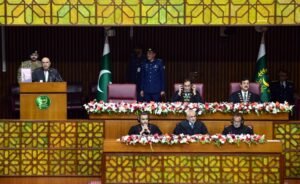Geneva (GNP): The International Association for Human Rights and Social Development (AIDHDES), a Geneva-based rights watchdog, has raised alarm over what it describes as persistent and systemic human rights violations in the United States. The statement was made as part of the organisation’s submission to the United Nations Human Rights Council for the upcoming Universal Periodic Review (UPR) of the US.
In its detailed report, AIDHDES highlighted entrenched inequalities across racial, economic, and institutional lines, and warned that the US continues to fall short of its international obligations.
The organisation drew particular attention to the lack of progress in addressing racial discrimination, excessive use of force by law enforcement, mass incarceration, and the criminalisation of migration—issues it said disproportionately affect marginalised communities, including African Americans, Latinos, indigenous peoples, and migrants.
The group also criticised the US for failing to ratify several core international human rights treaties, such as the International Covenant on Economic, Social and Cultural Rights (ICESCR), the Convention on the Elimination of All Forms of Discrimination against Women (CEDAW), and the Convention on the Rights of the Child (CRC). It said this reflected a long-standing reluctance to fully align domestic legislation with international human rights norms.
AIDHDES, which was established in Geneva in November 2020, has emerged as a vocal participant in global rights discourse, with a focus on both local and transnational issues.
The organisation has previously led side events at the UN Human Rights Council on the rights of indigenous peoples and victims of structural violence. It describes its mission as rooted in a rights-based development approach, with particular attention to the voices of communities affected by armed conflict, economic exclusion, and political repression.
In its submission, the organisation urged the Human Rights Council to hold the US accountable for unresolved structural issues. Among its recommendations were the ratification of outstanding international conventions, reforms to policing and prison conditions, greater protections for indigenous and minority rights, and increased access to healthcare, education, and housing. It also called on the US to review its foreign policy in light of its human rights impact, including the use of unilateral sanctions and its support for foreign regimes with questionable rights records.
While the US has frequently positioned itself as a global defender of human rights, the report pointed to what it termed a “gap between rhetoric and reality,” and stressed the importance of external scrutiny to ensure the country lives up to its international commitments.
The Universal Periodic Review is a mechanism of the UN Human Rights Council under which the human rights records of all UN Member States are reviewed every four and a half years. The US is scheduled to undergo its next review later this year. AIDHDES’s report will be one of several civil society submissions considered during the process.







